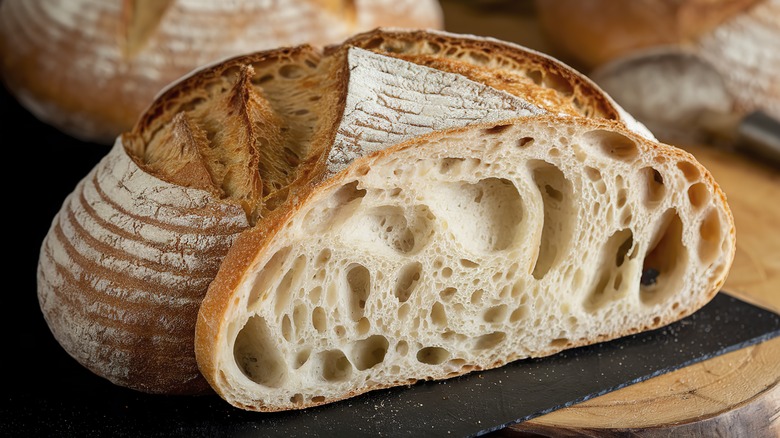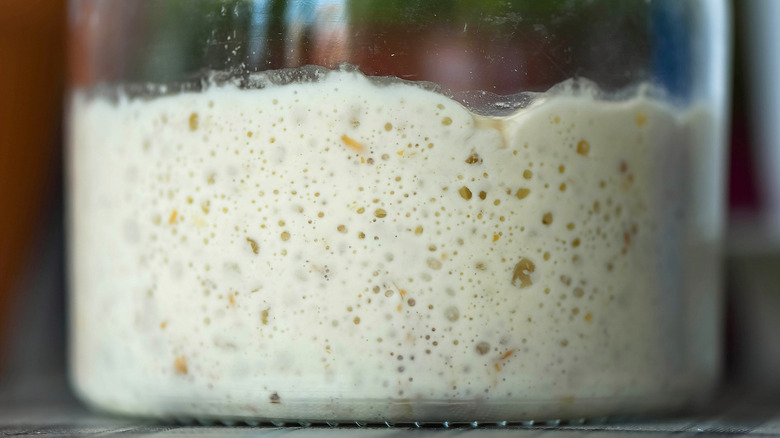Is Sourdough Bread Gluten-Friendly? It's Kind Of Complicated
Sourdough's popularity is still going strong five years after most everyone first birthed their quarantine sourdough starters. In tandem with sourdough's popularity is the continued trend of gluten sensitivities and gluten-free diets. The rise of two opposing trends at the same time, one gluten-free and one gluten-full, might seem contradictory, but actually some people with gluten sensitivities claim to be able to eat sourdough bread with no digestive discomfort.
The running theory behind this is that sourdough bread goes through a fermentation process as it rises, and fermentation is great for gut health — the implication being that they cancel each other out. Much like the probiotic colonies that make foods like yogurt, kombucha, kimchi, kefir, and pickles tangy and good for your microbiome, sourdough breads have similar microbiotic colonies that increase healthy bacteria in your gut.
The fermentation process also eases the strain that eating wheat flour can put on some people's digestive systems, as fermentation acts something like a pre-digestion process, helping to break down a portion of the gluten and other proteins to make it easier to digest. Although some people can digest sourdough easier than other typically leavened breads, this doesn't mean that sourdough bread is anywhere near gluten-free, nor is it safe to eat for people with celiac disease.
Sourdough may be gluten-friendly, but it isn't gluten-free
A sourdough starter is a colony of wild yeast and healthy bacteria that work together to make bread rise. (You can make your own foolproof sourdough starter with just two ingredients.) When mixed with flour, water, and salt to make bread dough, the fermented nature of the sourdough colony causes the dough to take longer to release gas than packaged, fast-acting yeast would. Which is to say, the dough takes more time to rise. In addition to breaking down potentially difficult to digest proteins in the flour, it also develops the unique flavor of sourdough bread.
Over the fermentation process, bacteria helps to break down the proteins and carbohydrates normally found in bread which is said to make them easier to digest. People with gluten sensitivities from IBS, endometriosis, or some other digestive issue are affected by these unprocessed proteins and carbs. It's the fact that the bacteria breaks these complex structures down that makes the bread easier to digest. One particular strain of carbohydrates called fructans are a particular cause of sensitivity. For reference, fructans are some of the first carbohydrates to be broken down by the sourdough fermentation.
Although people can more easily digest sourdough bread versus non-sourdough, gluten is still present in sourdough so it isn't at all gluten-free. This means that people afflicted with conditions like Celiac who cannot have any gluten still cannot eat sourdough bread.

